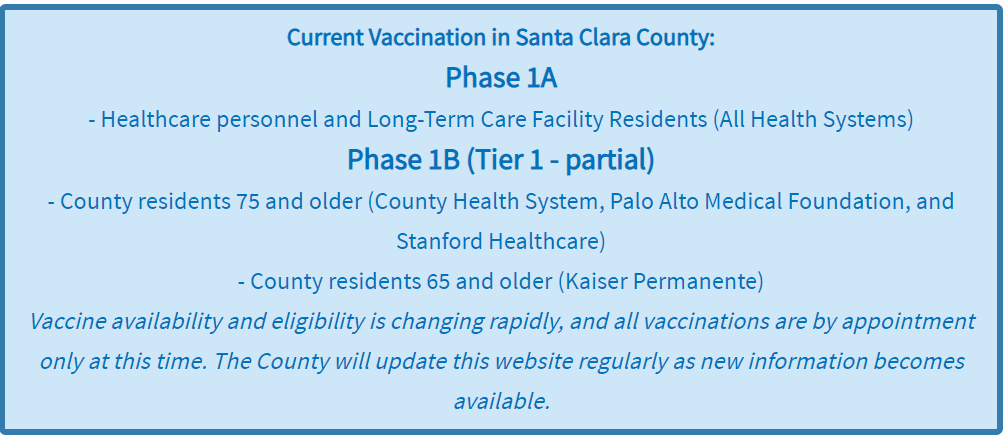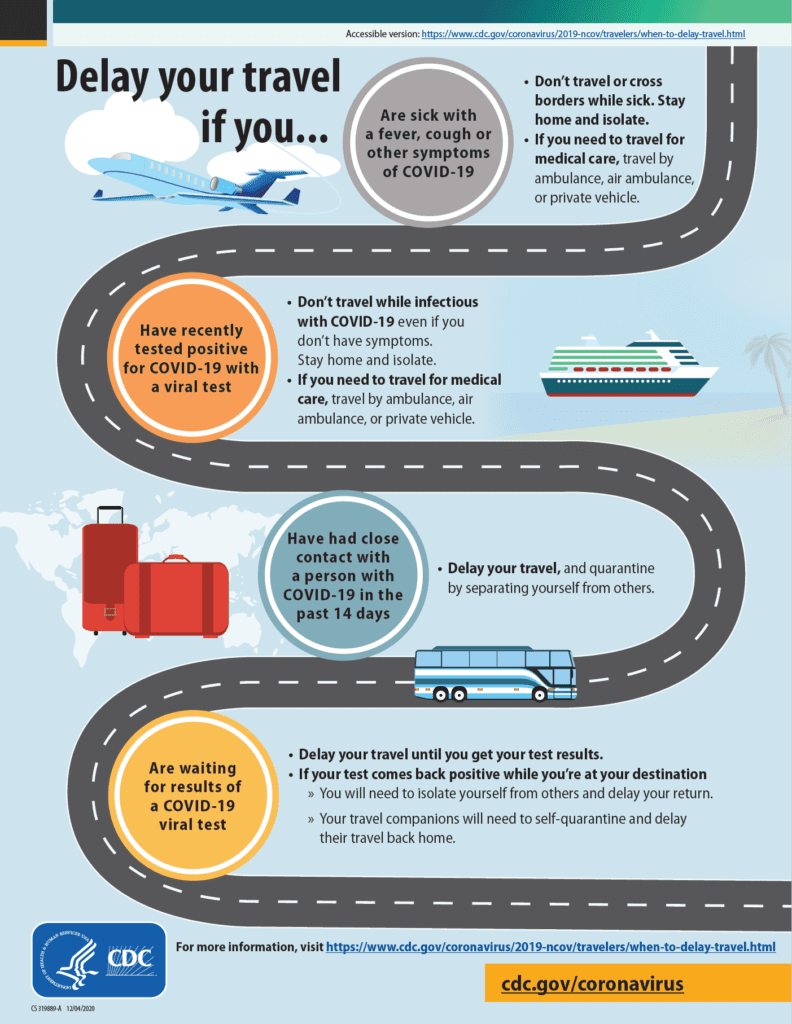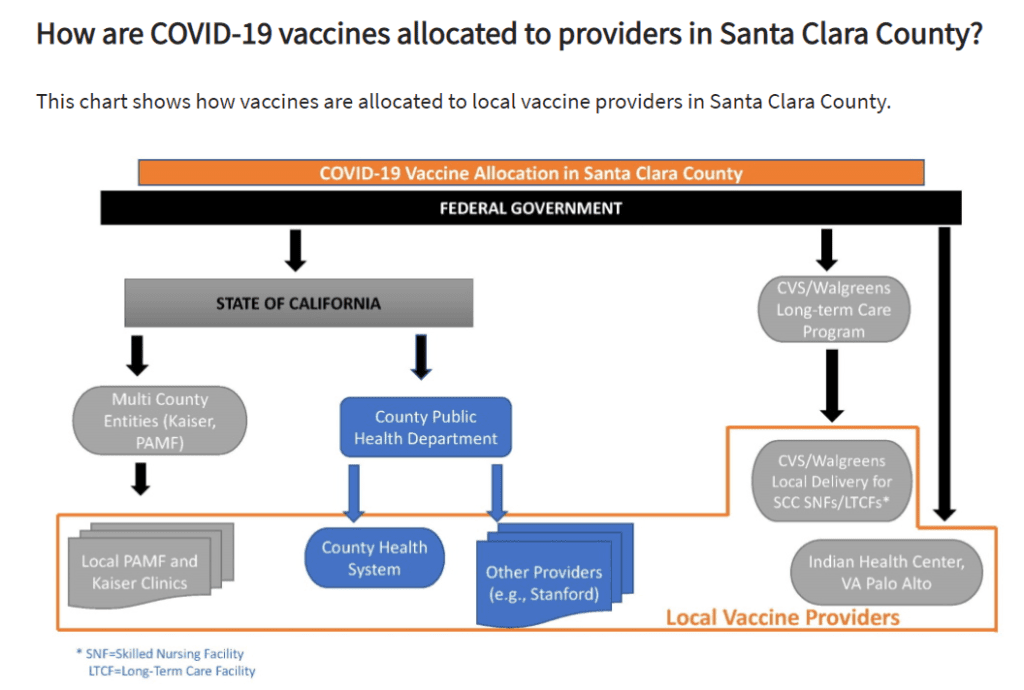Vaccines for COVID-19 have been slowly rolling out for more than a month now, but questions linger about its availability, who is eligible to receive the vaccine and how much it protects you.
Many residents faced confusion, long wait times and inaccurate information about how to get an appointment a day after vaccine eligibility opened up to people 75 or older.
Those trying to schedule their appointments have called the process “nuts,” “exhausting,” and “confusing.” Meanwhile, as of Jan. 14, more than 1,000 people have died from COVID-19 in the county. Here’s what we know about the vaccine, and what we’re still learning.
Who is eligible now for the COVID-19 vaccine in Santa Clara County?
All health care personnel in the county and long-term care facility residents can be vaccinated under Phase 1A of California’s vaccination plan. On Jan. 13, county officials announced that all residents ages 75 and older would also be eligible for the vaccine under Phase 1B, Tier 1.


According to the Santa Clara County vaccine website, www.sccfreevax.org, the county’s health system, Palo Alto Medical Foundation and Stanford Healthcare will be vaccinating individuals 75 years and older.
Kaiser Permanente announced that it will vaccinate county residents 65 years and older. Health care personnel and residents of long-term care facilities in Phase 1A will continue to be eligible for the vaccine as availability expands to other groups.
When will I be eligible for the vaccine? How do I register?
County officials follow state and federal guidelines to determine when people are eligible for the vaccine, based on three.


Health officials have warned that the vaccine is scarce, and they barely had enough doses to vaccinate eligible health care providers.
Gov. Gavin Newsom and the California Department of Public Health announced Jan. 13 that a new system is in the works to notify residents when they are eligible to receive a vaccine. People can register for notifications via email or text message. State officials expect to release more details on the system this week.
In Santa Clara County, the best way to find out who is eligible and when is to visit www.sccfreevax.org.
You must contact your health care provider to make an appointment for the vaccine. If you use the county’s public hospital system, click here to make an appointment.
Here is a quick guide to scheduling appointments with other health care providers:
- Kaiser Permanente: Call 1-866-454-8855.
- Palo Alto Medical Foundation: Click here.
- Stanford Healthcare: Click here.
- El Camino Health: Click here.
- Good Samaritan Hospital: Click here.
- Regional Medical Center: Click here,
How much does the vaccine cost?
COVID-19 vaccines are free, but you must be in an eligible tier where you live to receive the vaccine.
Medical providers could charge an administration fee for delivering the shots. That fee can usually be reimbursed by a health insurance provider. If someone is uninsured, there are national relief funds dedicated to covering the cost. According to the CDC, no one will be denied a vaccine if they are unable to pay the administration fee.


How many doses of the vaccine do I need?
Right now, the two vaccines approved for use in the United States, from Pfizer-BioNTech and Moderna. Both require two doses, three or more weeks apart.
A third vaccine is currently in development from Johnson & Johnson, and data suggests this vaccine would only require one dose. However, this vaccine hasn’t yet been approved for widespread use in the U.S. by the Food and Drug Administration.
Will the vaccine give me COVID-19?
No, the vaccine will not give you COVID-19. The vaccines available for widespread use in the U.S. do not contain the live virus that causes COVID-19, so it cannot give you the disease.
Symptoms after receiving the vaccine are fairly common, including redness, swelling and soreness at the injection site, headaches and fever, though the latter has been uncommon in vaccine trial participants. This is a sign that the body is building immunity against the virus.
It is possible that someone who has recently received both doses can still contract COVID-19. It can take up to a few weeks after vaccination for the body to fully learn how to fight the virus and produce the cells needed to fight off infection.
Do I need to get the vaccine if I have already had COVID-19?
The CDC recommends getting a vaccine even if you’ve contracted COVID-19. Not enough is known about the virus to understand what kind of “natural immunity” exists after recovery, though evidence shows it is rare to become reinfected within 90 days of having the virus. Reinfection is still possible, so the CDC recommends that all who are eligible should be vaccinated.
Once I get the vaccine, do I still need to wear a mask and social distance?
Experts are still learning about COVID-19, and predict that we’ll keep learning new things about it for some time to come. The CDC recommends social distancing and wearing a mask, even after receiving the vaccine. There is not enough research yet to determine whether a vaccine can prevent an individual from spreading the virus that causes COVID-19 to other people.
Can I travel after I get the vaccine?
The CDC recommends delaying most travel plans. Researchers still do not know if the vaccine prevents a person from spreading the virus that causes COVID-19, so you might want to limit your travel, especially in crowded places, to keep others safe.


have suspected or diagnosed COVID-19 (even if you don’t have symptoms) or have been around someone with suspected or diagnosed COVID-19 in the past 14 days (even if they did not have symptoms).
How do I know the vaccine is safe?
Both the Pfizer-BioNTech and the Moderna vaccines were tested in large clinical trials. The FDA and CDC will continue to monitor the data from Phase 3 of the vaccine trials, which are ongoing, to make sure the vaccine is safe. Finally, the FDA granted emergency approval for both vaccines because the agency determined that the benefits of the vaccine outweighed the risks.
How many vaccines have been administered in Santa Clara County?
County officials over the weekend created a new public dashboard showing the number of vaccines administered in the county.
Why is vaccine eligibility seem different across California?
This week, Newsom announced COVID-19 vaccines would be available statewide for every resident ages 65 and up. However, many counties, including Santa Clara County, are scrambling to keep up with the latest recommendation due to a shortage in vaccine supply.
The county receives its vaccine doses from the state and elected leaders plan to send an urgent letter asking for more vaccines.


Health care providers will determine when to move to the next eligible tier, depending on vaccine availability within their systems.
Officials announced Friday that each health care system “determines which categories of eligible patients they have the capacity to vaccinate at any given time.” These decisions are generally based on current supply of vaccine, and the number of patients they have the capacity to vaccinate each day.
For the latest, up-to-date information on vaccine rollout in Santa Clara County visit sccfreevax.org.
Have a question about COVID-19 vaccines? Email [email protected] and we’ll get the answer.
Contact Madelyn Reese at [email protected] and follow her @MadelynGReese on Twitter.


Leave a Reply
You must be logged in to post a comment.